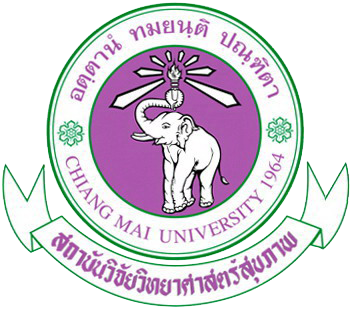IMPAACT P1081
Study title
A phase IV Randomized Trial to Evaluate the Virologic Response and Pharmacokinetics of Three Different Potent Regimens in HIV Infected Women Initiating Triple Antiretroviral Regimens between 28 and 36 Weeks of Pregnancy for the Prevention of Mother-to-Child Transmission
Study Code
IMPAACT P1081
Network
IMPAACT
Study PI
Prof. Virat Sirisanthana, M.D.
Study Co PI
Assoc. Prof. Pannee Sirivatanapa, M.D.
Assist. Prof. Fuanglada Tongprasert, M.D.
Linda Aurpibul, M.D.
Study sites
About 30 research sites around the world in north America, Latin America, and Asia (Thailand)
Funding agency
International Maternal Pediatric Adolescent AIDS Clinical Trials Group (IMPAACT) Sponsored by Division of AIDS (DAIDS), National Institute of Allergy and Infectious Disease (NIAID), National Institute of Health (NIH), US
Study design
This study is a Phase IV multicenter, three arm randomized, open label trial to evaluate three different potent drug regimens in HIV-infected pregnant women initiating triple ARV regimens in the third trimester for the purpose of preventing vertical transmission of HIV. The study population is HIV-1 infected pregnant women with gestational age 28-36 weeks who are antiretroviral naïve or have received antiretroviral therapy with short-course zidovudine (maximum of 8 weeks) for prevention of MTCT in previous pregnancies, and their infants
Study objective
Primary Objectives:
- To compare the ability to achieve both (a) a rapid viral load decrease (by week 2) which is sustained until delivery and (b) tolerability through delivery of three different triple ARV regimens (containing lopinavir/ritonavir, efavirenz or raltegravir) in pregnant women initiating triple ARV regimens between 28 and 36 weeks of gestation for PMTCT.
- To evaluate the safety of the three regimens including adverse events that may occur while on study drug or during maternal and infant follow-up.
Secondary Objectives:
- To compare the kinetics of viral decay among the three treatment regimens: a. Compare decay of plasma HIV-1 RNA with the three treatment regimens b. Compare decay of plasma HIV-1 infectivity with the three treatment regimens in a subgroup of women
- To describe the population pharmacokinetic parameters of efavirenz, lopinavir/ritonavir and raltegravir during the third trimester of pregnancy and postpartum using sparse sampling and to evaluate potential relationships between pharmacokinetic parameters and viral load changes or viral decay.
- To compare efavirenz, lopinavir/ritonavir and raltegravir concentrations in plasma from cord blood with those in maternal plasma at the time of delivery
- To measure efavirenz, lopinavir/ritonavir and raltegravir levels in amniotic fluid at the time of delivery for subjects delivering by Cesarean section.
- To assess ARV concentrations and HIV RNA load in maternal blood and vaginal specimens among women in the three 3 treatment regimens.
- To compare infant outcomes including stillbirth, premature birth, low birth weight, perinatal HIV transmission, neurodevelopmental outcomes and resistance in HIV-infected infants among the three treatment regimens.
- To describe and compare adherence to therapy among women in the 3 treatment regimens.
- To assess the baseline prevalence of HIV-1 drug-resistance to the study drugs, using standard genotyping and to assess the association of baseline genotypic HIV-1 drug resistance by ultra-sensitive OLA assays with (a) log change in viral load during the first six weeks of ART and (b) perinatal HIV transmission.
- To assess the selection of new drug-resistance mutations as a function of drug-class using standard and ultrasensitive genotyping methods among women who stop ART at 2-4 weeks postpartum.
- To assess the relationship between innate and adaptive immune responses of HIV-uninfected infants born to infected women with maternal inflammatory, activation and regulatory markers and with infant inflammatory markers in a subgroup of mother-infant pairs.
Number of participants to be enrolled (overall/at RIHES)
HIV infected
About 558 HIV-infected women and their infants will take part in this study at all sites.
For the Research Institute for Health Sciences and the Faculty of Medicine, Chiang Mai University will enroll approximately 15-20 pairs of participants (mothers and their infants) in this study.
Year: started
2014
Year: expected to finish
2018
Significance
Much virologic, immunologic and tolerability data derived from prospective clinical trials have shown the efficacy of various combinations of antiretroviral agents to treat HIV-1 infection. Most of these studies were done in HIV–infected adults with the primary efficacy outcomes based on the decline of plasma viral load within the first 24-48 weeks of starting therapy and on the durability of the virologic response, as well as changes in CD4 + T-cell counts after 48 weeks of therapy. Suppressive ARV regimens containing the PI combination of lopinavir/ritonavir or the NNRTI efavirenz have been extensively studied in non-pregnant adults. Another new class of ARV agents called integrase inhibitors has proven to be very potent in pre-clinical, phase II and III clinical studies in adult patients being generally well tolerated and demonstrating strong efficacy in both treatment-naïve and treatment-experienced patients with triple-class resistant virus . HIV-infected pregnant women presenting for care late in pregnancy need a rapid response and effective ARV therapy in order to minimize the risk of HIV transmission to their newborn. No data are available comparing the effects of NNRTIs, PIs and integrase inhibitors in these women. The goal of this protocol is to compare the safety, tolerance, pharmacologic, virologic and immunologic responses of representatives of these three ARV classes in HIV-infected pregnant women presenting late for care.
Study website (if any)
http://impaactnetwork.org/studies/P1081.asp




